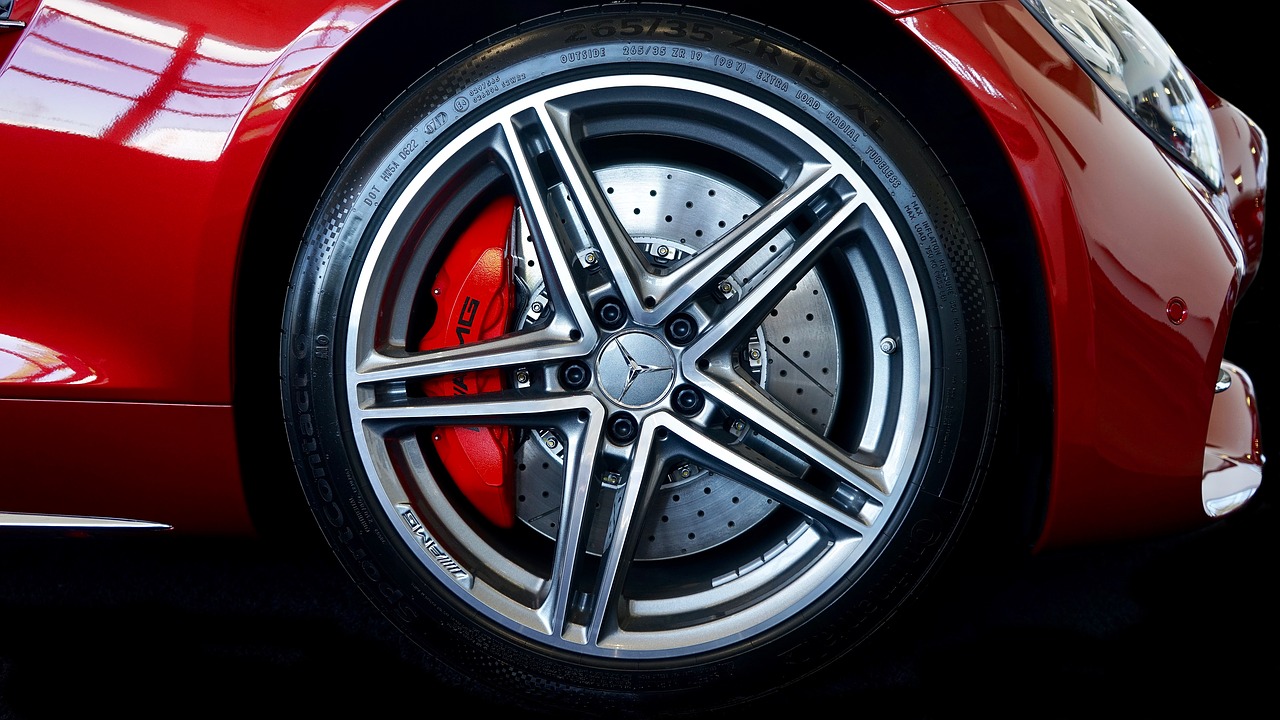Regular car maintenance involves caring for a number of systems. One system that you should focus on is the brakes. If you do not properly care for your brakes, then you put yourself at risk of not being able to stop in an efficient manner, which increases your chances of causing an accident. Without proper brakes, you put your own safety at risk, as well as that of everyone around you. Too often, drivers forget about caring for their brakes until an issue arises. At this point, it could be too late, or you may face high charges for replacing multiple components. With a bit of planning, you can ensure that your brakes remain in good working order.
Brakes and Basic Maintenance
A vehicle’s brake system is comprised of many different components. The key part of the system is the master brake cylinder, which receives a signal from the brake pedal and transfers pressure to each wheel. The signal goes to calipers or drum assemblies that put pressure on the wheels to slow the vehicle. Each wheel has a rotor, which is a spinning disc located behind the wheel. Brake pads compress this rotor to slow the wheel. Calipers are placed around the rotor, and they move the brake pads using a piston assembly. Rear wheels often have a drum assembly, which uses brake shoes to create friction and slow the vehicle. The entire system depends on brake fluid, which is kept in a reservoir near the engine. Brake lines serve as the conduit for the fluid, and they travel between the master cylinder and each wheel to communicate the signal.
Through a basic understanding of how your brake system works, you can obtain a better idea of the key maintenance components. For example, one key way to keep the brake system healthy is by ensuring that you keep the brake fluid cylinder full. When the fluid level falls, a lot of stress is placed on the master cylinder and other components of the system, including the pads, drums, and rotors. You should also undertake a visual inspection of the brake components, particularly if you have wheels that make it easy to see the calipers, rotors, and pads. Look for uneven wear and pits on the rotor, as well as rust on the caliper. If you notice these things, you should get your brakes serviced sooner rather than later. In addition, take a look at the car’s underbelly for signs of rust and holes, particularly if your brake fluid reservoir needs to be refilled.
Signs Your Brakes Need Attention
Your vehicle owner’s manual should have a schedule for proper brake maintenance, so make sure that you note the intended interval. A good rule of thumb is to service your brakes during every third oil change or approximately every 10,000 miles. However, your vehicle may have a different schedule. Even with this interval, you should pay attention to brake performance and seek help from a professional if you notice anything that seems amiss. Many people initially notice new noises coming from their brake system as they press down on the pedal. These noises are a sign that your brakes need attention.
Typically, a squealing noise means that it is time for new brake pads. This sound occurs when your pads are worn and the metal is rubbing directly on the rotor. Rattling or vibration that occurs when you brake could mean that a rotor is warped or worn. Typically, this rotor will need to be replaced. You may also notice a grinding sound. If you hear this only when you start driving, it could be rust that formed on the rotors because the vehicle was not being driven. The rust is knocked off as you use the brakes. You can park in a garage to avoid the humidity and dampness that leads to the formation of rust. If you notice intermittent sounds and the brakes don’t feel as responsive as usual, the system could be overheating, and you should talk to a mechanic. Another sign that your brakes need service is a spongy feeling that occurs when you press the brake pedal, particularly if you need to apply more pressure than before to stop.
How to Maximize the Life of Your Brake System
While regular checks and scheduled maintenance will help to ensure that your brakes remain healthy, you can maximize the life of the system by driving your vehicle in a responsible manner. When you brake hard, the system experiences more wear than with a normal stop, so it pays to drive slowly and brake gently. Another aspect to consider is your environment. If you drive in harsh conditions, such as on gravel roads or highways that have many potholes, there will be a greater impact on your brake system. Moreover, if you live in an area where there is a lot of moisture in the environment or where the winters are particularly cold and snowy, this can impact your brakes. You can avoid these consequences by choosing not to drive when conditions are bad and storing your vehicle in a garage. However, you should have your brakes serviced more often if you live in a harsh environment.
